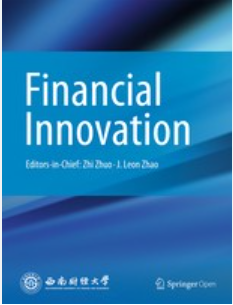How do supply or demand shocks affect the US oil market?
IF 7.2
1区 经济学
Q1 BUSINESS, FINANCE
引用次数: 0
Abstract
The study of the relationship between crude oil and its refined products prices may be perceived as an important tool for testing how are the dynamics and the type of integration of the petro-derivatives market in the United States. In this sense, we have applied a set of causality tests to study the possible presence of asymmetries in the relationship between WTI crude oil and each refined product price and to explore the type of market integration. Furthermore, the application of these causality tests lets us explore the validation of different hypotheses in the literature, such as the Rocket and Feathers hypothesis and the Verleger hypothesis. Our findings reveal that Reformulated Gasoline Blendstock for Oxygen Blending (RBOB), heating oil, diesel and kerosene are supply-driven integrated and conventional gasoline and kerosene are demand-driven integrated when linear effects are assessed. This behaviour changes deeply when the existence of asymmetries is tested, noticing that the Rocket and Feathers hypothesis is not fulfilled when a negative shock appears. Conversely, the Verleger hypothesis is supported when a negative shock appears for conventional gasoline and kerosene. These results provide important policy implications for investors, energy policymakers and refiners.供需冲击如何影响美国石油市场?
原油与其成品油价格之间关系的研究可被视为测试美国石油衍生品市场动态和一体化类型的重要工具。从这个意义上说,我们应用了一系列因果关系检验来研究 WTI 原油与每种成品油价格之间关系中可能存在的非对称性,并探索市场一体化的类型。此外,通过这些因果检验,我们还可以探索文献中不同假说的验证情况,如火箭和羽毛假说以及 Verleger 假说。我们的研究结果表明,在评估线性效应时,用于掺氧的重配汽油(RBOB)、取暖油、柴油和煤油是供应驱动的一体化,而传统汽油和煤油是需求驱动的一体化。在检验是否存在非对称性时,这种行为发生了深刻变化,注意到当出现负面冲击时,火箭和羽毛假说并不成立。相反,当传统汽油和煤油出现负面冲击时,Verleger 假设得到支持。这些结果为投资者、能源政策制定者和炼油商提供了重要的政策启示。
本文章由计算机程序翻译,如有差异,请以英文原文为准。
求助全文
约1分钟内获得全文
求助全文
来源期刊

Financial Innovation
Economics, Econometrics and Finance-Finance
CiteScore
11.40
自引率
11.90%
发文量
95
审稿时长
5 weeks
期刊介绍:
Financial Innovation (FIN), a Springer OA journal sponsored by Southwestern University of Finance and Economics, serves as a global academic platform for sharing research findings in all aspects of financial innovation during the electronic business era. It facilitates interactions among researchers, policymakers, and practitioners, focusing on new financial instruments, technologies, markets, and institutions. Emphasizing emerging financial products enabled by disruptive technologies, FIN publishes high-quality academic and practical papers. The journal is peer-reviewed, indexed in SSCI, Scopus, Google Scholar, CNKI, CQVIP, and more.
 求助内容:
求助内容: 应助结果提醒方式:
应助结果提醒方式:


